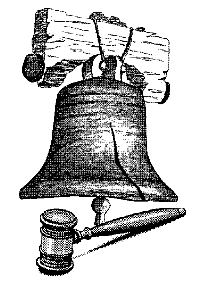I have long refused to embrace the liberal attempt to label the Republican Party as the "Party of 'No.'" It is true that the overall aim of a large number of recent conservative initiatives has been simply to stymie the efforts of the Democratic Party. It is certainly tempting -- and politically expedient -- to use this resistance as a marketing tool for the Democratic brand. This appears slightly unfair, however, when one considers the universe of possible options for legislators in the minority in response to bills that they oppose. At the most basic level, behind all of the political maneuvering, bargaining, and compromising, lawmakers are ultimately faced with two options -- "Yea" or "Nay." Thus, it may be unfair to criticize Republicans in Congress for voting against legislation that was crafted almost entirely by individuals with whom they staunchly disagree (this is ignoring, of course, the possibility of bipartisan initiatives that by definition require some measure of sacrifice from both parties -- concessions that Republicans have been remarkably averse to making and in that some respects may actually warrant the above label). Still, the conservative opposition to President Obama's planned speech to students goes a long way toward justifying this criticism.
It is completely understandable (even expected) that the political party in the minority will attempt to make a serious issue out of each and every available opportunity. Both Democrats and Republicans engage in this type of warfare constantly, and the less influential the party is the louder one can expect the myriad complaints to be. It is also understandable that one ideological camp will attempt to ensure the integrity of its own message while challenging that of a competing faction. This tension and interplay of ideas in our society is what spurs discussion and, more than anything else, serves to safeguard citizens' intellectual and expressive freedoms. The conservative opposition to the President's proposed address to students, however, goes too far and transcends the bounds of reason.
The vociferous response that this event has elicited is nothing short of startling. Such a proposition is certainly not without precedent; several previous presidents including Ronald Reagan and George H.W. Bush have addressed students with impunity. It is also difficult to see how "speak[ing] directly to the nation’s children and youth about persisting and succeeding in school" and "challeng[ing] students to work hard, set educational goals, and take responsibility for their learning" will have a detrimental effect on the student population. In fact, one would assume that encouragement from the leader of our country would have uniquely positive effects.
Conservatives insist that this speech is reprehensible because its true aim is to "indoctrinate America's children to his socialist agenda." They decry what they term "the idea that school children across our nation will be forced to watch the President justify his plans" and claim it "is not only infuriating, but goes against beliefs of the majority of Americans, while bypassing American parents through an invasive abuse of power." If valid, this assertion would indeed be a serious concern, but granting credence to this suggestion is irrational and completely unwarranted.
First, to assume that a simple speech by President Obama would have the power to instantly "indoctrinate" America's youth is simply preposterous. This claim would have more credibility if the White House were suggesting, for example, a regular program of morning addresses that were required to be shown to students each day during the school year. A single, optional message wishing good luck and expressing encouragement to students simply does not have the ability to brainwash the whole of the student population.
Second, an attempt to manipulate students via a single televised address would be poorly conceived and ill-advised. Many children are likely too young to appreciate the significance of the moment, much less complicated justifications for policy positions (were any even intended to be offered). Students who are old enough to comprehend these arguments are probably also adept enough to seriously consider and reflect critically on what they mean. One would hope that they are also intelligent enough to think about the issues facing the nation and to based their conclusions on their own understanding, analyses, beliefs, and principles.
Finally, it is important to remember that the speech being offered is to be given by the elected leader of the most powerful country in the free world -- not some dangerous, unstable individual intent on harming the nation's children. It is a public message meant to encourage students, and which is able to be viewed by students, parents, teachers, seniors, and anyone else who wishes to tune in. Though teachers are encouraged to incorporate the moment into their lesson plans, it is by no means mandatory and the White House has no control over if or how teachers choose to discuss it. It would be beyond idiotic for any elected official to abuse such a public event by indulging in shameless personal promotion or campaigning, and there is no indication that this is the President's goal.
All available evidence tends to show that this address is intended to do what countless public servants have done before -- encourage America's youth, draw attention to the importance of education in our society, and provide an opportunity for civic engagement. Why say no?
Thursday, September 3, 2009
Subscribe to:
Post Comments (Atom)


No comments:
Post a Comment